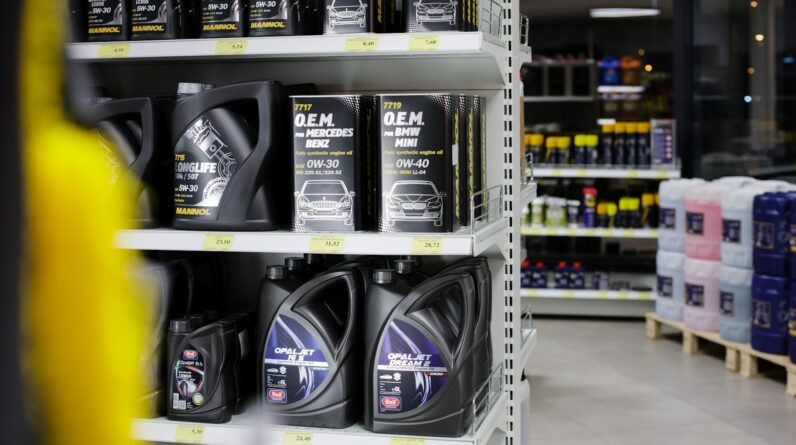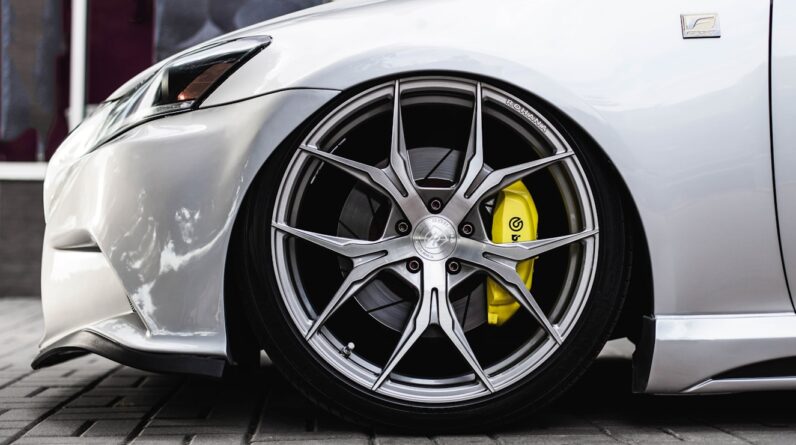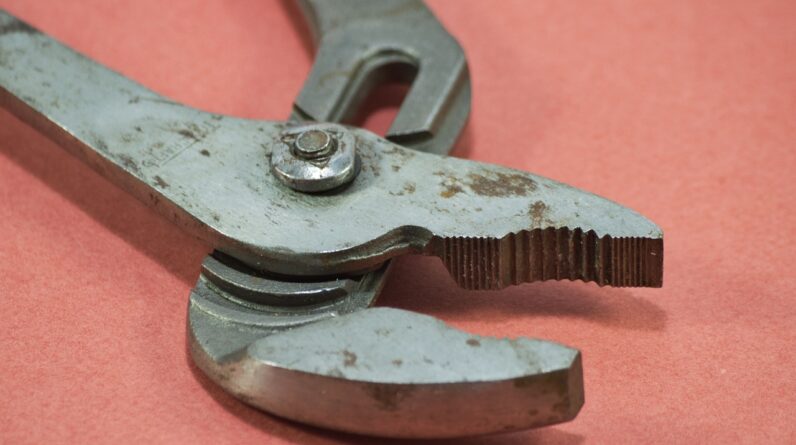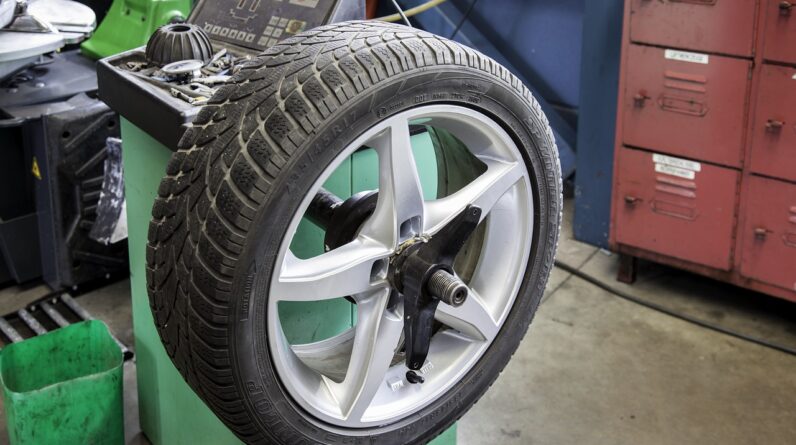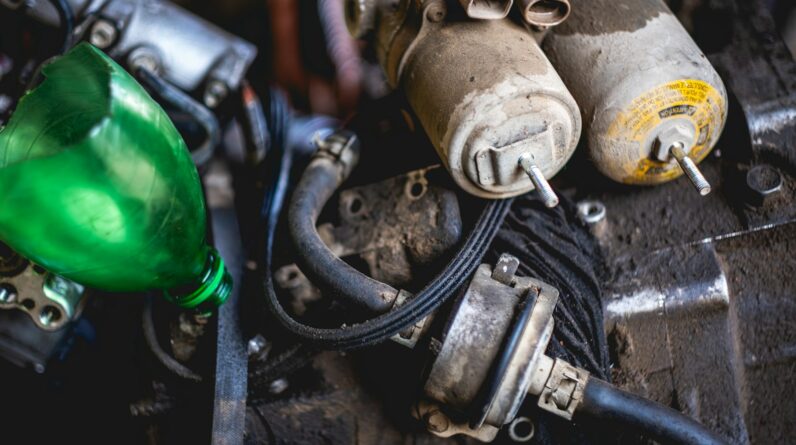
Rev up your engine’s performance with essential car repair tips! Discover effective fuel system cleaning methods to ensure smooth driving and improved efficiency.
Have you ever wondered how to keep your car running smoothly, especially when it comes to the engine and fuel system? Maintaining our vehicles is crucial, and understanding a few essential car engine repair tips can significantly enhance our driving experience. Today, we’re going to focus on effective fuel system cleaning, which plays a vital role in optimizing our engine’s performance.

Understanding the Fuel System
Before we get into the nitty-gritty of fuel system cleaning, it’s important for us to understand what the fuel system comprises and how it functions. The fuel system is responsible for delivering fuel to the engine, mixing it with air, and ensuring it burns efficiently to produce the power that moves our vehicle.
Key Components of the Fuel System
We’ll break down the main components that make up our car’s fuel system:
| Component | Function |
|---|---|
| Fuel Tank | Stores the fuel until needed by the engine. |
| Fuel Pump | Pumps fuel from the tank to the engine. |
| Fuel Filter | Removes impurities and contaminants from the fuel before it reaches the engine. |
| Fuel Injectors | Spray a fine mist of fuel into the engine’s combustion chamber. |
| Throttle Body | Controls the amount of air entering the engine and mixes it with fuel. |
Each of these components works together to ensure our vehicle operates efficiently. When any part of this system fails or becomes clogged, we may experience reduced performance, poor fuel economy, or even engine stalling.
Signs of Fuel System Issues
Recognizing the signs of a fuel system problem early on can save us time, money, and frustration. Here are some common symptoms we should watch for:
Decreased Fuel Efficiency
If we notice that our car is using more fuel than usual without any changes in driving habits, it could be a sign of a dirty fuel system.
Engine Stalling or Rough Idling
A vehicle that stalls unexpectedly or idles roughly may indicate that fuel isn’t reaching the engine consistently. This may be caused by clogged fuel injectors or a failing fuel pump.
Poor Acceleration
If our car struggles to gain speed when we press the gas pedal, dirty fuel injectors or a malfunctioning throttle body could be to blame.
Unusual Engine Noises
Knocking or pinging sounds from the engine might suggest that fuel isn’t being injected properly, leading to uneven combustion.
By being attentive to these warning signs, we can take proactive measures to address issues before they escalate.
Importance of Fuel System Cleaning
We might be wondering, why is cleaning the fuel system so important? Over time, deposits can build up in the fuel system, leading to performance issues. Regular cleaning of the fuel system helps to:
- Improve Fuel Efficiency: A clean fuel system allows for better fuel atomization, which enhances combustion and improves our vehicle’s miles per gallon (MPG).
- Extend Engine Life: Keeping our fuel injectors and other components clean reduces wear and tear, contributing to a longer engine lifespan.
- Enhance Performance: A clean fuel system ensures that our engine runs smoothly, providing us with a more enjoyable driving experience.
- Prevent Costly Repairs: By cleaning the fuel system regularly, we can avoid more serious issues that could require costly repairs.
When to Clean the Fuel System
Determining the right time for a fuel system cleaning can be tricky. Here are a few guidelines to help us figure out when action is needed:
Recommended Interval for Cleaning
- Every 30,000 miles: As a general rule, we should consider cleaning the fuel system every 30,000 miles, or as recommended by our vehicle’s manufacturer.
- When experiencing symptoms: If we notice any of the signs mentioned earlier, it’s wise to have our fuel system checked.
Factors Influencing Cleaning Frequency
- Fuel Quality: Using low-quality fuel regularly can lead to quicker buildup of deposits, necessitating more frequent cleaning.
- Driving Conditions: Frequent stops, short trips, or driving in heavy traffic can contribute to fuel system contamination.
Understanding these factors can help us better maintain our fuel systems, allowing for optimal performance.

DIY Fuel System Cleaning Techniques
Cleaning our fuel system can seem daunting, but there are some effective DIY methods we can use. Here are a few techniques to consider:
Using Fuel System Cleaner Additives
One of the simplest methods for cleaning our fuel system is using commercially available fuel additives. These products are designed to clean fuel injectors and remove deposits. Here are the steps we can follow:
- Choose the Right Additive: Look for reputable brands known for effectively cleaning fuel systems.
- Follow Manufacturer Instructions: Pour the recommended amount of cleaner into our fuel tank when refueling.
- Drive the Vehicle: After adding the cleaner, driving our vehicle allows it to circulate through the system and do its work.
Manual Cleaning of Fuel Injectors
If we’re feeling adventurous and want to go one step further, we can manually clean the fuel injectors. This method is more involved but can yield great results:
- Gather Tools: We’ll need some basic tools, including a fuel injector cleaning kit, safety goggles, gloves, and a clean workspace.
- Relieve Fuel Pressure: Before starting, we should relieve pressure from the fuel system by removing the fuel pump fuse while starting the engine until it stalls.
- Remove Fuel Injectors: Carefully disconnect and remove the fuel injectors from the engine.
- Clean Injectors with Solvent: Following the manufacturer’s instructions, spray a fuel injector cleaner solvent onto the injectors and let them soak.
- Reinstall Injectors: After cleaning, reattach the injectors and reconnect all components.
Keep in mind that this is a more technical process that requires caution, so if we’re not comfortable, it’s best to seek professional assistance.
Professional Fuel System Cleaning Services
While DIY methods can be effective, sometimes it’s worth entrusting the job to professionals. Having a trained mechanic perform a fuel system cleaning can ensure a thorough and safe process.
What to Expect from a Professional Service
Here’s a breakdown of what generally occurs during a professional fuel system cleaning:
- Comprehensive Inspection: The technician will assess the fuel system for signs of wear, leaks, and deposits.
- Removal of Deposits: Specialized equipment will be used to clean fuel injectors and other components, sometimes involving pressurizing solvents through the system.
- Testing Systems: After cleaning, the technician will often run tests to ensure that the components are functioning properly.
- Recommendations: We’ll receive advice on if any components need replacement or if the cleaning improved performance.
Cost of Professional Cleaning
While costs can vary depending on location and vehicle type, we can generally expect to pay between $100 to $300 for a professional fuel system cleaning service. While this may seem like a considerable expense, it can save us from more costly repairs down the line.

Maintenance Tips to Prevent Fuel System Problems
Regular maintenance can go a long way in preventing fuel system issues. Here are some practical tips to keep in mind:
Use Quality Fuel
Choosing higher-quality fuel can make a significant difference. Premium fuels often contain detergents that help keep the fuel system cleaner.
Change Fuel Filters Regularly
Making a habit of replacing our fuel filter according to the manufacturer’s schedule can prevent clogs and ensure clean fuel flows to the engine.
Drive Regularly
Occasional longer drives can help keep fuel moving and burn off any deposits that might otherwise accumulate. If we have a vehicle that we don’t drive frequently, we might consider taking it for longer rides occasionally.
Monitor Engine Performance
By being attentive to our vehicle’s performance and addressing issues early, we can maintain a healthier fuel system.
Conclusion
Understanding how to effectively clean and maintain our fuel system is a crucial aspect of car ownership. By following the tips outlined in this guide, we can ensure our vehicle runs efficiently and reliably. Remember, a well-maintained fuel system not only enhances performance but also extends the life of our engine. Whether we choose to tackle some of these cleaning methods ourselves or seek professional help, regular attention to the fuel system will pay dividends in the long run.


